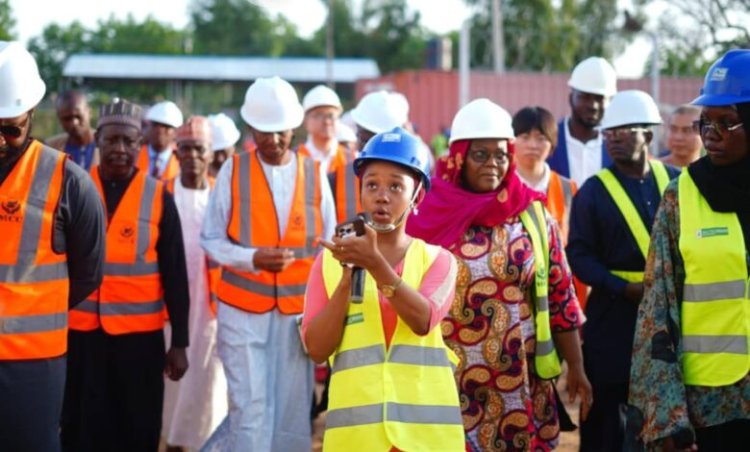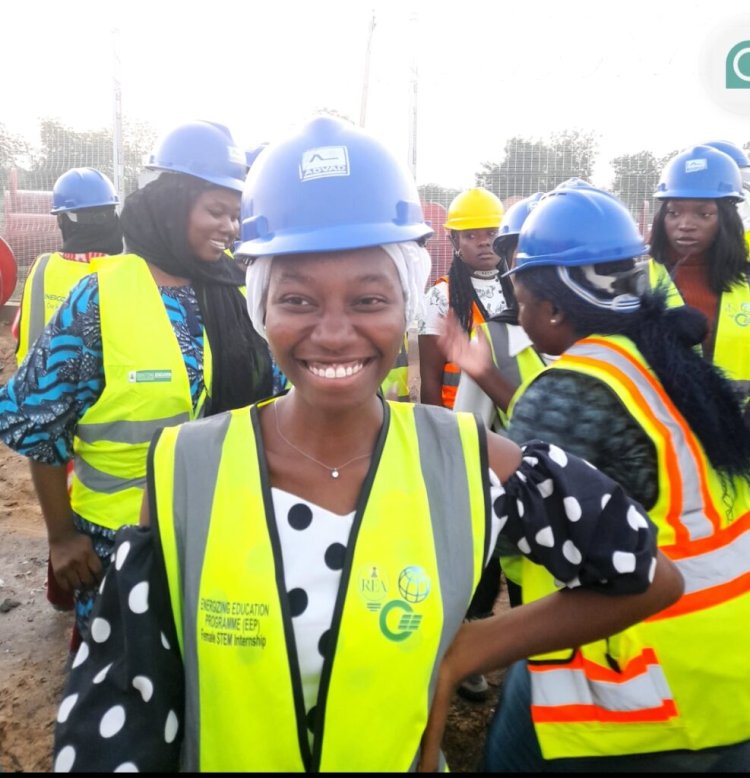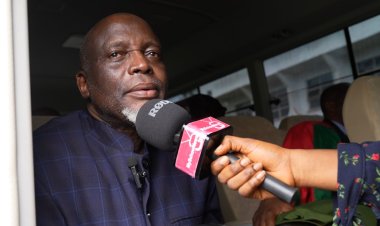UNIMAID Female Engineering Students Break Barriers in Solar Power Project
Despite making up the majority of the workforce in many African countries, women occupy less than 20% of science and engineering jobs across the continent, according to African Women in Science and Engineering (AWSE).

Despite making up the majority of the workforce in many African countries, women occupy less than 20% of science and engineering jobs across the continent, according to African Women in Science and Engineering (AWSE). However, a World Bank-funded initiative under Nigeria’s Energizing Education Programme (EEP) Phase II is set to challenge this statistic by empowering female engineering students through hands-on experience in the renewable energy sector.

The Rural Electrification Agency (REA), which oversees the EEP, is spearheading a project to provide clean and reliable energy to seven federal universities and two university teaching hospitals. This initiative is not just about electrification but also about bridging the gender gap in the traditionally male-dominated engineering field by engaging twenty female students as interns on each project site.
“The objective is to promote Gender Inclusiveness; in this case, encouraging more women to participate and take up more active roles in the power sector,” REA said in a statement.
At the forefront of this effort is the University of Maiduguri (UNIMAID) in Borno State, where construction of a 12-megawatt solar power plant, the largest among the universities involved in the project, is ongoing. The initiative has provided female engineering students at UNIMAID with an invaluable opportunity to gain practical experience in renewable energy.
“My on-site experience has been nothing short of amazing. It has given me hands-on experience in renewable energy, especially solar power. I have learned skills ranging from surveying to solar panel installations. This opportunity is a stepping stone towards a sustainable future,” said Aisha Kabir Abbagana, a 500-level engineering student and one of the interns.
Recently, Aisha, along with 19 other female engineering students from UNIMAID, led a high-level delegation from the REA and the World Bank Mission on a tour of the facility at the university.
Another intern, Deborah Silas, a 400-level Civil and Water Resources Engineering student, shared her experience: “This internship has taught me how to connect PV panels to batteries, inverters, and transformers as needed. It has also shown me that the renewable energy space is not gender-biased, and I can excel in this field. I intend to pass on the skills I have acquired to future generations, emphasizing the benefits of renewable energy in drastically reducing greenhouse gas emissions.”
Zainab Umar Ibrahim, a 400-level computer engineering student, echoed similar sentiments. “The use of fossil fuels and gasoline has caused more harm than good, and we need to explore other energy options to save the planet,” she said. “I’ve had the opportunity to learn practically from professionals in the field, which has expanded my understanding from theoretical to real-world applications, including electrical generation and distribution. This experience has allowed me to explore different paths in the renewable energy sector, distinct from my original course of study.”
As the project moves toward completion, with the 12-megawatt solar plant expected to be operational by September, these female interns are poised to share their stories of empowerment, highlighting the significance of their roles in this groundbreaking initiative.
“I plan to share my knowledge with others, especially women because I strongly believe that renewable energy is the future of the global energy landscape,” said Hauwa Muhammad, a 400-level mechanical engineering student.
The Energizing Education Programme is more than just providing electricity, according to Ashish Khanna, the World Bank’s Practice Manager for West Africa. “It’s about skill-building, job creation, and fostering innovation, especially among female STEM students,” he stated.
Abba Abubakar Aliyu, REA’s Managing Director/CEO, emphasized the project’s importance: “Providing electricity to tertiary institutions is crucial.” He noted that many universities in Nigeria are currently grappling with financial challenges due to rising electricity costs, with some even disconnected from the national grid due to unpaid debts.
“The mission is to create a sustainable future for Nigeria’s educational institutions,” added Olufemi Akinyelure, Head of the Nigeria Electrification Project.
Despite the challenges that could arise with an all-female group of interns, the project has encountered no issues. Ms. Walong Goodabar, the student coordinator for the solar power project, assured that the presence of the female interns has not hindered progress.
“Yes, all the interns are female, but this has not posed any challenges for us on site. The main engineers, who are mostly male, act as mentors and guides for the interns. We have encountered no issues whatsoever,” she explained.
This initiative marks a significant step forward in promoting gender inclusivity in engineering and ensuring that the next generation of female engineers in Nigeria is well-equipped to contribute to the country’s renewable energy future.

 Lois Udoye
Lois Udoye 



